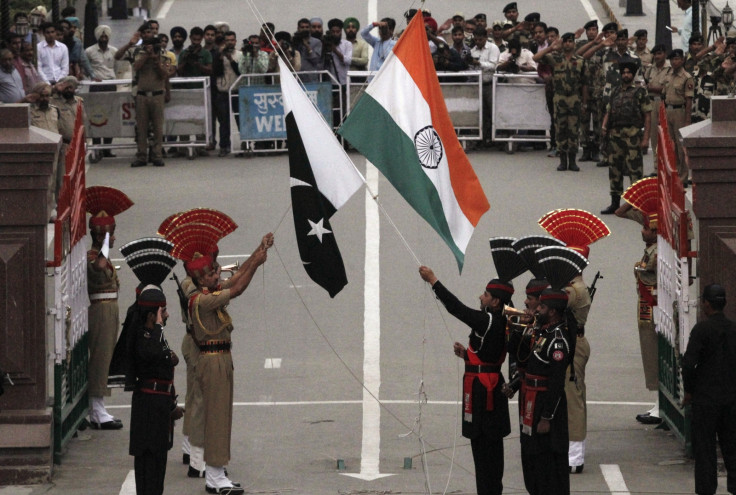Wagah Blast: 20 Arrested, Pakistan Minister Sees 'Foreign Hand' While Three Banned Outfits Claim Responsibility

Pakistani authorities have arrested 20 people, including a suspected suicide bomber, for Sunday's attack at Wagah. The death toll stood at 62 on Monday.
Security has been beefed up on the occasion of Muharram to handle sectarian violence and deter any possible attack on Shias who've been targeted by the Taliban, reports the Times of India.
Authorities recovered eight kg of explosive and a suicide vest from the area around the blast site.
The bodies of the blast victims were handed to the families after the post-mortem.
While three home-grown militant factions have separately claimed responsibility, the Punjab administration was more inclined to believe in the involvement of the "foreign hand."
Punjab Interior Minister Col (R) Shujah Khanzada told Outlook India, "The suicide-bomber wanted to blow himself up at the Parade Avenue. Had he succeeded a ground would been prepared for action against Pakistan by the international forces. This is why some foreign hand seems to be behind this incident."
Banned outfits Jundullah and al Qaida-affiliate Jamaat-ul-Ahrar were the first to claim responsibility for the attack, while a third group, Mahar Mehsud, joined the assertion.
A search in residential areas of Wagah led to the arrest of 20, including a teenager suspected to be a suicide bomber from Multan district, as far away as 350 km.
It is not clear if the attack was due to a security lapse or a shift in concentration of forces in Lahore ahead of Muharram. Government sources said that a warning had been issued four days ago, indicating a potential strike against security forces.
Sunday's attack was the first by militants after Pakistan launched Operation Zarb-i-Azab, its military offensive against the Taliban in the north.
Sunday's attack is seen as a strategic shift in operations from the western border with Afghanistan to the eastern front between Pakistan and India.
Despite early reports that the flag lowering ceremony at the border would be suspended for three days, India and Pakistan went ahead with the military ritual on the border crossing.
In all, 62 people including women, children and security personnel were killed when a suicide-bomber blew himself up near the main gate of Wagah Border Parade Avenue on Sunday. More than 100 were injured.
© Copyright IBTimes 2025. All rights reserved.





















